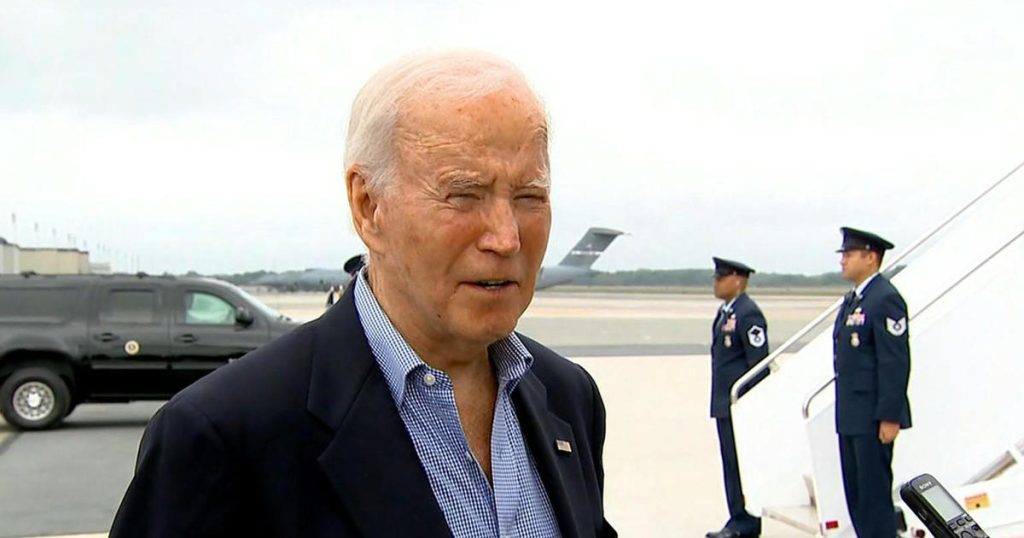President Biden emphasized the need for diplomacy and dialogue in the ongoing conflict in the Middle East, stating that an all-out war must be avoided at all costs. He expressed his intention to speak with Israeli Prime Minister Benjamin Netanyahu to discuss the situation and work towards a peaceful resolution. This statement comes amidst escalating tensions and violence between Israel and Hamas, leading to widespread devastation and loss of life in the region. Biden’s call for diplomacy reflects his commitment to resolving conflicts through peaceful means and working towards a lasting solution to the long-standing issues in the region.
The escalating conflict in the Middle East has led to a significant humanitarian crisis, with numerous casualties and extensive damage to infrastructure in both Israel and Gaza. President Biden’s emphasis on avoiding an all-out war highlights the grave consequences of continued violence and the impact it has on innocent civilians caught in the crossfire. By advocating for diplomacy and dialogue, Biden is positioning the United States as a mediator in the conflict, seeking to facilitate discussions and negotiations that can lead to a peaceful resolution and prevent further escalation of violence.
The decision to engage with Israeli Prime Minister Benjamin Netanyahu demonstrates President Biden’s commitment to addressing the conflict directly with key stakeholders and seeking a path towards de-escalation. By opening channels of communication with Netanyahu, Biden aims to convey the importance of resolving the conflict through peaceful means and avoiding a full-blown war that would have devastating consequences for the entire region. This direct engagement signals the Biden administration’s proactive approach to addressing the situation and working towards a sustainable peace agreement that addresses the underlying issues fueling the conflict.
President Biden’s stance on prioritizing diplomacy over military intervention aligns with his overall foreign policy approach of engaging in multilateral diplomacy and working with allies to address global challenges. By calling for a peaceful resolution and urging all parties to exercise restraint, Biden is seeking to de-escalate tensions and create a conducive environment for negotiations. This approach contrasts with previous administrations’ more aggressive approaches to conflicts in the Middle East and signals a shift towards a more diplomatic and inclusive strategy for resolving disputes and promoting peace in the region.
As the conflict in the Middle East continues to unfold, President Biden’s commitment to dialogue and diplomacy becomes increasingly important in mitigating the crisis and preventing further loss of life. By engaging with key leaders in the region and advocating for peaceful solutions, Biden is signaling a departure from the traditional cycle of violence and retaliation that has characterized conflicts in the Middle East for decades. His call for avoiding an all-out war highlights the urgent need for constructive dialogue and cooperation among all parties involved to achieve a sustainable peace that addresses the root causes of the conflict and ensures the safety and well-being of all those affected.
In conclusion, President Biden’s call for diplomacy and his commitment to avoiding an all-out war in the Middle East underscore his dedication to promoting peace and stability in the region. By engaging with key stakeholders and advocating for peaceful solutions, Biden is working towards de-escalating tensions and facilitating discussions that can lead to a lasting resolution of the conflict. His emphasis on dialogue and restraint reflects a shift towards a more diplomatic and inclusive approach to addressing global challenges and underscores the importance of multilateral cooperation in resolving conflicts and promoting peace.


